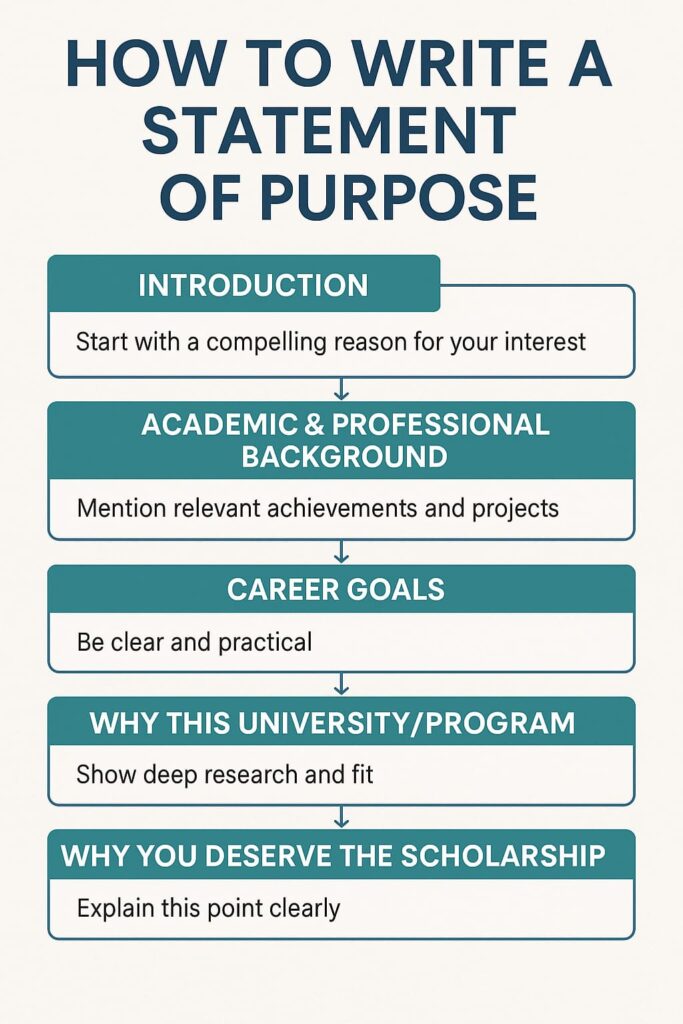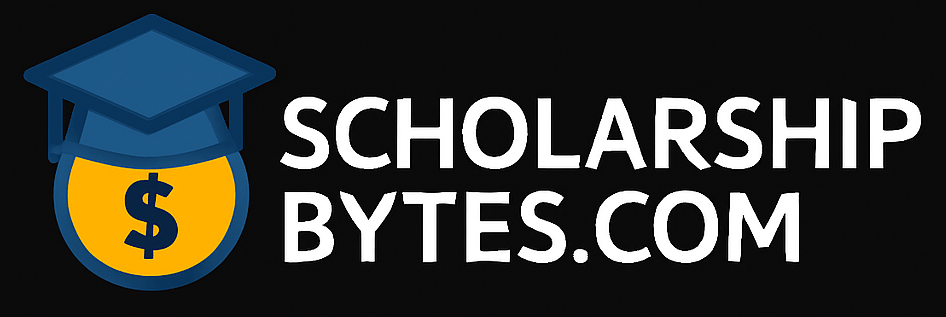Writing a strong SOP for scholarships and admission can be the key to unlocking your academic and financial future. Whether you’re applying to a top university or aiming for a competitive scholarship, your Statement of Purpose (SOP) is your chance to stand out from the crowd. It tells your story, showcases your achievements, and explains why you’re the perfect candidate — not just for the program, but also for the funding it offers.
In this guide, you’ll learn how to craft an SOP that stands out and increases your chances of getting both admission and funding.
What is a Statement of Purpose (SOP)?
A Statement of Purpose is a personal essay that explains your academic background, career goals, and why you’re applying to a specific program or university. When applying for scholarships, the SOP also justifies why you deserve financial support based on merit, need, or leadership potential.
Why SOP for Scholarships is Important ?
Universities and funding bodies receive thousands of applications. Your SOP:
- Humanizes your application
- Highlights your achievements and goals
- Justifies your need for financial aid
- Demonstrates your alignment with the program’s values
Powerful SOP for Scholarships – Key Points
Here’s a breakdown of what a winning SOP should include:
| Section | Purpose |
|---|---|
| 1. Introduction | Hook the reader and introduce your goal |
| 2. Academic Background | Show your intellectual journey and achievements |
| 3. Career Goals | Short and long-term plans that align with the program |
| 4. Why This University/Program | Research-based justification |
| 5. Scholarship Justification | Explain why you deserve funding |
| 6. Conclusion | Summarize and reaffirm your aspirations |
How to Structure Your SOP (With Example)

🧩 Introduction: Start with a compelling reason for your interest. Example
“From developing solar-powered models in school to interning at a cleantech startup, my journey has been driven by a passion for sustainable engineering.”
🧩 Academic & Professional Background: Mention relevant achievements and projects. Example
“I ranked among the top 5% in my undergraduate class at [Your University], where I majored in Electrical Engineering…”
🧩 Career Goals: Be clear and practical. Example
“In the next five years, I aim to lead clean energy innovation projects in underserved regions of South Asia.”
🧩 Why This University/Program: Show deep research and fit. Example
“The Master’s in Renewable Energy at [University] offers cutting-edge labs and collaborations with industry leaders, which align perfectly with my career goals…”
🧩 Why You Deserve the Scholarship: Explain this point clearly. Example
“Despite financial constraints, I’ve consistently pursued academic excellence. A scholarship would allow me to fully engage in research and contribute to the university community.”
🧩 Conclusion:
“With my technical foundation, social commitment, and drive, I believe I’m an ideal candidate for both this program and the scholarship support it offers.”
SOP Writing Tips
- Keep it 1–1.5 pages long (approx. 800–1000 words)
- Use formal yet personal tone
- Avoid clichés like “ever since I was a child…”
- Proofread for grammar and clarity
- Tailor for each university and scholarship
Also Read: Top 6 Extracurricular Activities for Scholarships You Must Know
SOP Writing Common Mistakes to Avoid
- Too generic or vague
- Copying from online templates
- Ignoring the scholarship criteria
- Overloading with technical jargon
- Not explaining career goals clearly
FAQ Section
Can I use the same SOP for all universities?
No. Tailor each SOP to match the university’s program, faculty, and scholarship focus.
Should I mention my financial need?
Yes — especially when applying for need-based scholarships. Just be honest and concise.
Can I hire someone to write my SOP?
It’s better to write it yourself for authenticity, but professional editing is fine.
Conclusion
A strong SOP can open doors to top universities and scholarships. Take your time to craft a compelling narrative, highlight your strengths, and show why you’re a perfect fit — academically, professionally, and financially.


![How to Write an SOP for Scholarships in 2026 [Expert Guidance] SOP for scholarships](https://scholarshipbytes.com/wp-content/uploads/2025/05/SOP-for-scholarships-1024x683.jpg)